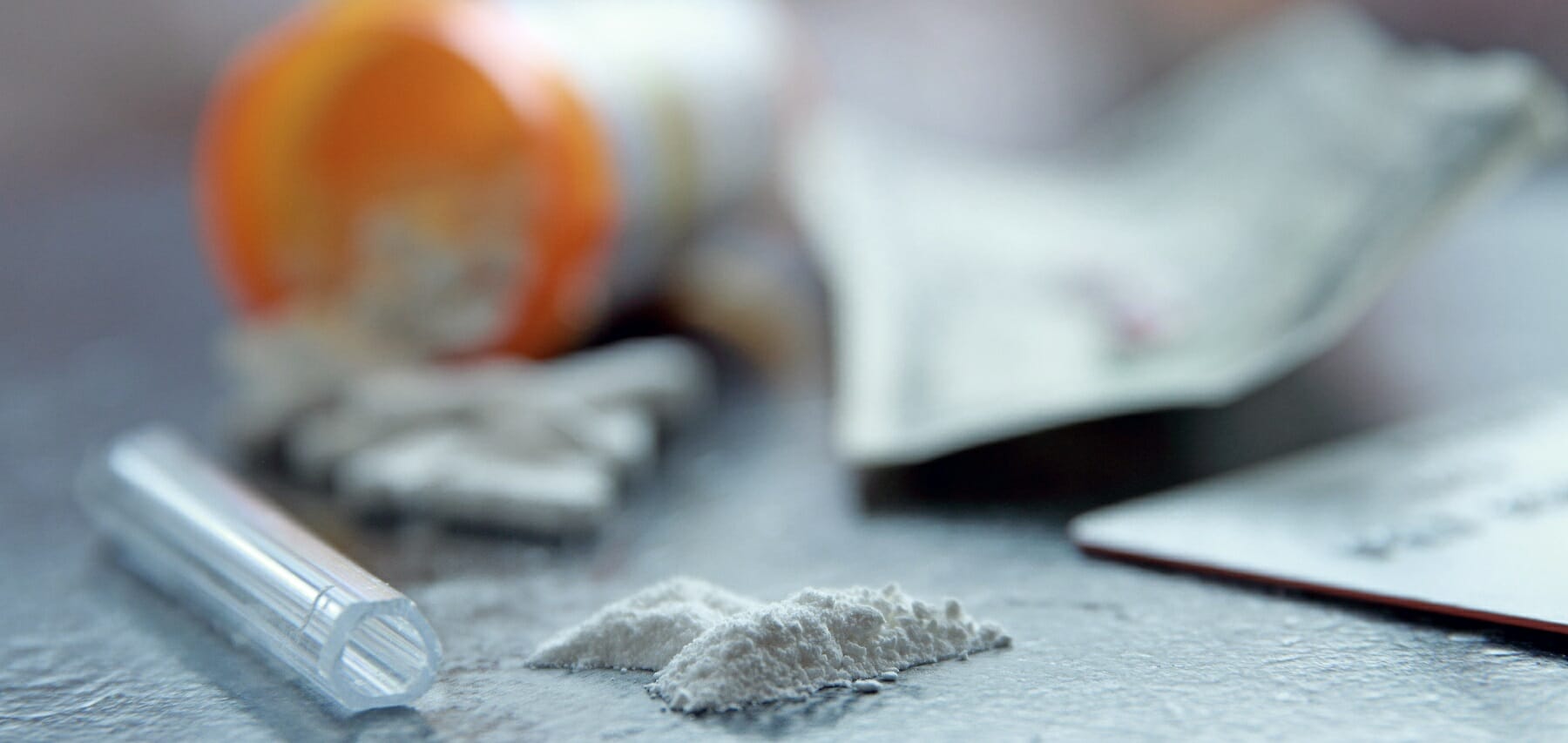
Most people who engage in addictive behaviors and go on to develop an actual drug addiction find that overcoming it is more challenging than they expected. Even though the difficulties people have with quitting drugs are well known, when people start using, they often feel that addiction is a myth and they can quit any time they want. Or they feel that they are an exception to the rule.
This is even more likely with non-substance, or behavioral, addictions involving activities such as excessive eating, sex, gambling, shopping, and exercise. What makes the situation even more complicated is that for every addictive behavior, there are some people who are able to engage in the behavior without developing an addiction.
This is true of all of the behavioral addictions (some of which involve healthy or necessary actions, like eating, exercise, and shopping). But it’s also true of substance use. There are some cases of controlled drinking, recreational marijuana use, and even controlled heroin use.
Most people think they are one of the lucky few who won’t get hooked, and unfortunately, don’t realize the truth until it is too late.
By the time they recognize the need for change, they may not even want to. It can take years of being faced with the negative consequences of an addiction before realizing that it is causing significant problems.
Making the Decision to Change
But sooner or later, most people who have an addiction decide a change needs to happen. Once the decision is made, most people have a specific goal in mind. It might be to quit entirely, to quit some addictive behaviors or substances (but not all), to reduce the amount of time or money spent on addictive behaviors, or to reduce the harm of an addictive behavior.
For example, many drug users decide to quit heroin or meth but continue to drink alcohol, or smoke cigarettes or marijuana. Many heavy drinkers have the goal of just one drink a day, or only drinking socially. Getting clear on your goal before putting it into practice is helpful for success in changing an addictive behavior.
Although quitting entirely is the best path to wellness, reducing or eliminating the most harmful substance use is a huge improvement and will greatly reduce the harm caused.
The same is true of behavioral addictions: Anyone who decides to quit eating entirely is heading for an eating disorder. But stopping overeating and embracing a healthy diet is a healthy decision to change.
Complete abstinence from sex can be another form of sex addiction, known as sexual anorexia, yet developing healthy intimacy after a sex addiction can be greatly fulfilling. And reducing obsessive exercise to healthy levels is likely to improve health and wellness more than quitting exercise entirely.
Making the decision to change, and deciding what that change will look like, is a process that often takes a while. This is known as the contemplation stage because it involves contemplating, or thinking about, whether to change and what the change should involve.
Ambitious goals are not always best; it is better to set a goal that you will actually achieve than to plan to quit cold turkey and end up relapsing, which can be more dangerous than simply continuing without any changes. Consulting a doctor, addiction counselor, or psychologist is particularly helpful at this stage, as these professionals can help you understand the risks and what can help alleviate them.
The Different Stages of How to Overcome Addiction
Preparing to Change
Once you are clear on your goal, you may still need to prepare to change. Preparations include removing addictive substances from your home, as well as eliminating triggers in your life that may make you more likely to use those substances again.
People addicted to sex might need to dispose of porn and clear porn websites from their online history and favorites. Overeaters might need to go through their food cupboards and get rid of stockpiles of candy and cookies. Shopaholics and problem gamblers might need to cut up their credit cards and arrange with their bank to have just enough cash to cover bills and living expenses.
Perhaps the hardest preparations to make concern social relationships, which often revolve around addictive behaviors for people with addictions. Heavy drinkers often find joining a self-help group, such as AA, helpful for having a group of buddies who understand what they are going through.
Suddenly quitting an addictive behavior can be lonely, especially if you have lost touch with people who don’t indulge in the same behaviors.
Take time to contact friends and family who will support you in your goals without being judgmental if times become hard and you slip up. You might also want to let those friends you drink, use drugs, or engage in addictive behaviors with know that you are planning to change.
They may not understand—or you may be pleasantly surprised. Either way, it’s a good idea to let them know of your goal and what they can do to support it (even if that means taking a break from the friendship for a time).
For alcohol and drug addictions, it is a good idea to talk to your doctor or local drug clinic about whether you need medical help in quitting. There are options for medications to help alleviate withdrawal symptoms. If you have an underlying mental health problem, such as anxiety or depression, it could find worsen during the withdrawal phase. Typically, doctors and drug clinics are very supportive and helpful.
Quitting an Addictive Behavior
Quitting is a different experience for everyone. Some find the process liberating and empowering, and feel they can achieve anything. Others find it painful, difficult, and frustrating, sometimes needing many failed attempts before achieving their goal. Still others discover new sides to themselves during the quitting process (a greater capacity for compassion, for example).
There is no “right” way to feel while you are quitting. But if you are feeling depressed or find yourself constantly wanting to return to the addictive behavior, you should seek support and treatment.
Getting Treatment to Overcome an Addiction
There are many different treatments that can help you during the process of overcoming an addiction, including medical and psychological treatments. There is no one “right” type of treatment, although some approaches are better supported by research than others.
Cognitive behavior therapy (CBT) helps many people, and research shows it to be very effective in helping people overcome all kinds of addictions. But CBT is not for everyone. Other approaches may be better suited for those who do not relate well to analyzing their thoughts, feelings, and behaviors.The 9 Best Online Therapy Programs We’ve tried, tested and written unbiased reviews of the best online therapy programs including Talkspace, Betterhelp, and Regain.
Mindfulness-based approaches have become much more popular and can be easier to relate to for many people. As with CBT, mindfulness is helpful for people with underlying mental health problems, such as anxiety or depression.
A variety of other treatments can be helpful, including couples counseling, family therapy, and neurotherapy. Medications can sometimes be helpful in the short term or the long term. Talk to your doctor about the options that are available to and appropriate for you.
Coping With Withdrawal Symptoms
Withdrawal symptoms can be a difficult aspect of overcoming addiction, both for substance and behavioral addictions. With substance addictions, the physiological aspects of withdrawal can be extremely uncomfortable, feeling like a bad flu, or can even be life-threatening. For this reason, it is a good idea to talk to a doctor about the best way and the best place to quit a substance.
Fortunately, most of the acute symptoms of withdrawal pass within a week or two of quitting. However, some people who quit an addiction find that certain withdrawal symptoms seem to go on and on. This is known as post-acute withdrawal syndrome, and it can go on for weeks, months, or even years in some cases.
The risk of dying from an overdose is extremely high if you have been through withdrawal, as your tolerance of the drug will be much lower than it was before you quit. Make sure you have someone with you if you decide to use again.
In addition, addictions can sometimes mask underlying mental health problems, such as anxiety, depression, sleep disorders, and even psychosis. If you are feeling blue or agitated, or you are concerned that the world or other people seem strange or upsetting since you quit, talk with your doctor. There are effective treatments for these problems that are much more effective than addictive substances and behaviors.
Avoiding Relapse
No one who puts in the effort to cut down or quit an addictive behavior wants to fail. Yet relapse is more common than overcoming an addiction on the first try. This does not mean you will fail—it simply means that it might take a few tries for you to get it right.
One of the most common reasons for relapse is cravings. Cravings are strong urges to use or engage in the addictive behavior, and they are common during withdrawal. But they can also creep up suddenly and unexpectedly weeks, months, or years after quitting. Although they can feel intense, you can learn to cope with cravings without giving in to them.
Another common cause of relapse is thinking you have control now, and one drink, drug use, binge, or whatever won’t matter. Well, it might and it might not. Sometimes a relapse is a single drink or use, and you might find you don’t even enjoy it any more. Or it could be a slippery slope to using regularly or excessively again. It could even mean overdose or death.
Coping With Relapse
It is important not to see relapse as a failure. The first thing to do when you realize you have relapsed is to understand what happened. Understanding why you relapsed is often one of the most important parts of truly overcoming an addiction.
Once you understand your triggers and weaknesses, you can put things in place to reduce the chance of relapsing again. You can then apply what you learned from the first time you quit or cut down to be more successful next time.
Controlled Behavior After an Addiction
Even if your goal was to quit completely, you may decide at some point in the future that you want to be able to occasionally indulge without doing so excessively. This is possible, but it is important to be very clear about what it is you want to do. For example, if you want to be able to have an occasional drink with friends, then you need to be able to have one drink and then stop.
Many drinkers find it easier to stay completely abstinent than to drink occasionally. If you intend to have one drink and end up having several, you should reassess your goals and what is achievable for you at this time of your life. This might be a new experience for you, and it could be liberating. It could also seem boring and difficult.
Avoiding Replacement Addictive Behaviors
Some people find that when they quit or change an addictive behavior, another comes along to replace it. Heavy drinkers and smokers often find themselves overeating and putting on weight. People struggling with sex addiction might find themselves obsessed with exercise.
Addictive behaviors have similar neurological and psychological processes and create rewarding feelings and sensations. So replacement addictive behaviors are common among those trying to overcome an addiction.
The trick to avoiding replacement addictions is to find satisfaction in the experiences of normal life. These experiences may lack the intensity and high of addictive behaviors, but getting to know and like them can introduce a new level of calm you may have never experienced before. Many people feel they are more in touch with reality and that relationships are more authentic than when they were constantly seeking pleasure.
The other important aspect of avoiding replacement addictions is to address any underlying mental health problems. Addictions can cover up past trauma, or underlying feelings of emptiness, sadness, or fear. Psychological therapies, as well as medications, can provide long-term relief for these problems, which addictions tend to worsen over time.
Changes in Relationships and Friendships
Your relationships and friendships are likely to change as you overcome your addiction. It may take time to appreciate a new normal. You may also be touched by the loyalty and simplicity of those who live life without chasing a high. You may find that friends and family whom you could not get along with while you were embroiled in your addiction welcome you back into their lives.
However, it can also take time and effort for trust to be re-established if you have hurt friends or family while you were actively involved in your addiction.
You may also find that you have less in common with the friends you spent the most time with during your addiction than you realized, and you might find they are intolerant to your new lifestyle. Remember, you are a great role model and doing these friends a great service by showing them that change is possible. That said, don’t let them pull you back into the life you left behind.
A Word From Verywell
Long-term recovery is not a final destination, but an ongoing process of facing and coping with life without retreating into addictive behaviors. It takes ongoing commitment, which can waver at any time—particularly times of stress. Seek help when you need it. Others in recovery, or professionals who work in addiction, understand that you still need support. We wish you well as you take this important step for your health



